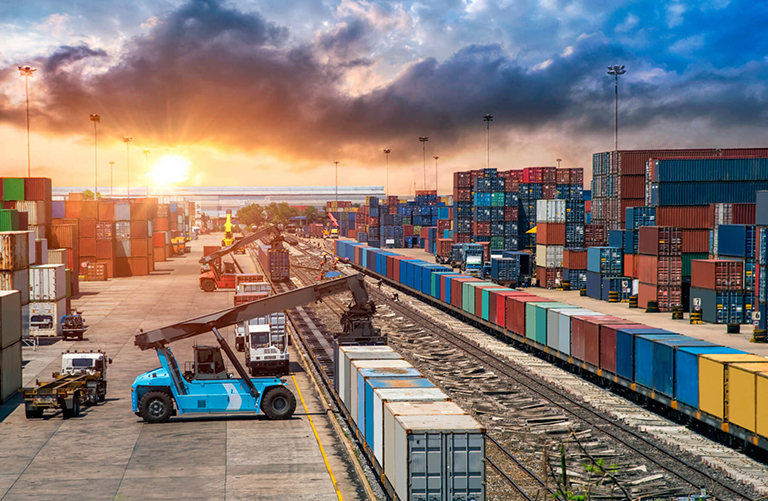Our Blogs

Shipping from China to the UK: The Complete Guide 2025
China remains one of the UK’s largest trading partners, making the shipping process between these two countries a crucial aspect of global commerce. Whether you are a business owner looking to import goods or an individual seeking cost-effective shipping solutions, understanding the available shipping methods, costs, transit times, and key considerations can help streamline your logistics. This guide will walk you through everything you need to know about shipping from China to the UK in 2025.
Choosing the Right Shipping Method
There are multiple shipping options available, each catering to different needs in terms of cost, speed, and cargo size.
Sea freight is the most economical method, especially for bulk cargo. Shipping via ocean containers typically takes between 40 to 60 days. Businesses can opt for Full Container Load (FCL) if they have large shipments or Less than Container Load (LCL) for smaller loads.
Air freight is the fastest option, with transit times ranging from 3 to 10 days. It is, however, significantly more expensive than sea freight and is best suited for high-value or time-sensitive goods.
Road freight from China to the UK is an emerging option that provides a balance between speed and cost. It involves trucks transporting goods through Eurasia and typically takes 20-30 days. This method is gaining popularity as a middle-ground solution for those looking for faster delivery than sea freight at a lower cost than air transport.
Rail freight has also grown in popularity due to its reliability and efficiency. It takes about 25 to 40 days and is frequently used for goods such as electronics, textiles, and machinery.
Shipping Costs and Fees
The cost of shipping from China to the UK depends on several factors, including the chosen shipping method, the weight and volume of the cargo, customs duties, VAT, fuel surcharges, and seasonal demand. Sea freight is generally the most cost-effective option, while air freight is the most expensive.
It is advisable to compare multiple freight forwarders to secure the best rates and negotiate based on shipment size. Importers should also factor in potential additional costs, such as warehousing, insurance, and last-mile delivery charges.
Customs and Import Regulations
A smooth customs process is essential to prevent delays and additional expenses. Importers must ensure that all required documentation is complete and accurate. This includes a commercial invoice, packing list, and a Bill of Lading or Airway Bill, depending on the shipping method.
Declaring the correct HS code for products is crucial, as it determines the applicable customs duties. Importers must also be prepared to pay import VAT and duties, which vary depending on the type of product being shipped. The UK government provides online tools to estimate these costs in advance.
Choosing a Reliable Freight Forwarder
Partnering with an experienced freight forwarder can simplify the entire shipping process. A good freight forwarder should have expertise in handling shipments from China to the UK and offer transparent pricing without hidden fees. Tracking services, real-time shipment updates, and assistance with customs clearance and documentation are also key factors to consider when choosing a logistics provider.
Key Shipping Routes and Transit Times
Shipping routes and transit times vary depending on the chosen method.
Sea freight shipments commonly travel from major Chinese ports such as Shanghai, Shenzhen, and Ningbo to UK ports like London, Felixstowe, and Southampton, taking approximately 40 to 60 days.
Air freight routes include departures from cities like Beijing, Guangzhou, and Hong Kong, with arrivals in London Heathrow and Manchester, offering transit times of 3 to 10 days.
Road freight from China to the UK follows a route passing through Kazakhstan, Russia, Belarus, Poland, and Germany before reaching the UK. This method takes around 25 to 30 days.
Rail freight follows a route from cities like Chongqing and Yiwu, arriving in London in approximately 25 to 40 days.
Best Practices for Hassle-Free Shipping
Working with an experienced freight forwarder can significantly reduce shipping complexities. Double-checking import restrictions and documentation helps avoid unnecessary delays. Planning shipments in advance ensures smoother transit, especially during peak seasons. Choosing the right freight method based on urgency and budget is key to cost-effective and timely deliveries. Tracking shipments allows for better logistics management and helps businesses stay informed throughout the shipping process.
China Imports: Your Trusted Logistics Partner
At China Imports, we specialise in seamless shipping solutions, including air, sea, rail and road freight from China to the UK. Our expertise ensures cost-effective, timely deliveries, helping businesses streamline their supply chains. Trust us to handle your imports with efficiency, reliability, and exceptional customer service. Your success is our priority. Contact us using our landline – 01753 385202 or our email address enquiries@chinaimports.uk, we will be happy to help you out.

